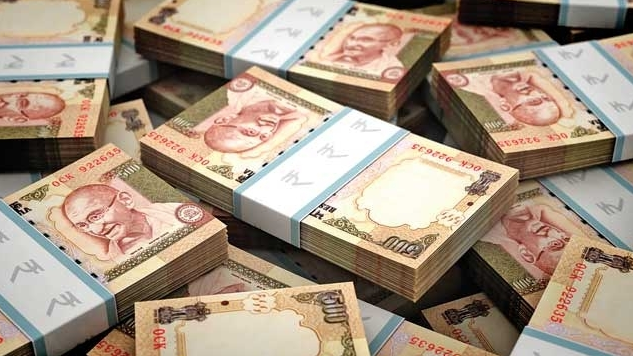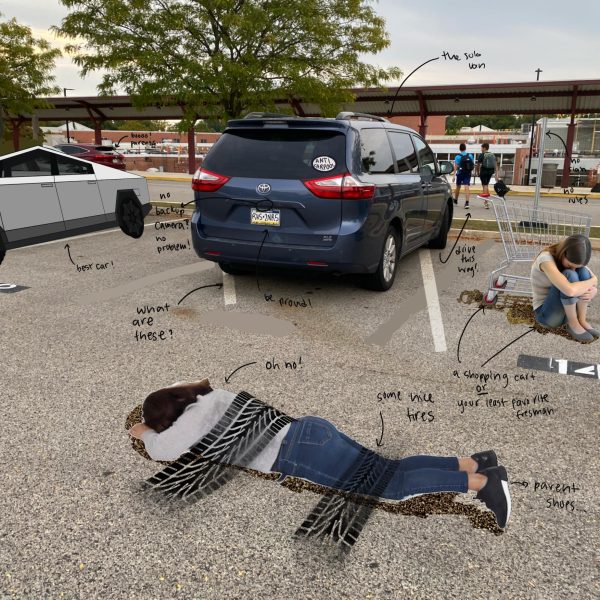India’s Push to a Cashless Society
December 12, 2016
Narendra Modi, India’s prime minister, took office in 2014 with lofty goals, specifically a less cash based society. This past month, India advanced toward the goal with a ban on two major bills, the Rs 500 and Rs 1,000 notes, that account for the bulk of currency in circulation. Citizens have until New Year’s to convert these notes into other bills, including newly minted ones.
“Black money”, which is cash or any other form of fortune that sidesteps taxation, plagues India’s economy. World Bank approximated, in 2010, the shadow economy totals one-fifth of the country’s G.D.P. Most evasions transpire in the top tax bracket, fostering an even bigger class rift and depriving the government of money for public service (education, infrastructure, health services). Modi hopes with less cash circulation, people will have a harder time evading taxes.
While Modi’s aspirations are commendable, demonetization upsets the economy and only dents corruption. Implemented seemingly to impede inflation, terrorism sponsoring, and corruption, demonetization ignores the laws of economics causing its most likely downfall. Already, citizens can see the negative effects.
Soon after the policy’s implementation, panic-stricken Indians rushed to exchange money. Lengthy lines zigzagged in front of banks filled with a desperate poorer class, who often live off cash savings and therefore have no bank account. Anybody wanting to convert more than 250,000 rupees must give a reasonable explanation why they have so much cash or pay a penalty. This requirement, hoping to combat corruption, ironically provokes more corruption. Bulks of illegal cash are divided into smaller chunks and deposited my different individuals. Even worse, demonetization hurts the people it’s intended to aid. Peddlers of durable good like jewelry request cash payment, which builds up over time. Women often stow cash away from their husbands for their children or the house. These people, all with a poor socioeconomic status, are often harassed by tax collectors. Consequently, they may give up some of their savings and avoid the trouble instead.
The negative effects do not stop there. Because so much money is taken out of circulation, India’s economic growth will likely plunge. Additionally, investors and citizens will change to a stronger currency leading to a decrease in the rupee’s value, prolonging the economic downfall. Some black money will be caught through these measure, but too little for a serious change in the country. The upper class holds most of the illicit cash. There is nothing stopping them from destroying it save their business’s name. Moreover, illicit cash for most is not tangible money. It’s gold, silver, real estate, and overseas bank accounts. With no serious amendments in catching tax evaders citizens can hoard the new bills issued.
India defended demonetization as a way to not only curb counterfeit cash circulation, but also moderate inflation. However, seizing forged money does not lead to a long term solution of catching the terrorist who minted them or stopping them from contributing more illicit cash into the economy. Instead, it troubles the counterfeit money’s current owner, who most likely did not create it. Black money is not directly correlated with inflation any more than white money; no evidence or study proves it. Inflation is caused by excessive money, whether legal or not.
If Modi wants to truly hamper the black money economy, he should move India to a genuine cashless economy with online banking. Only 53% of Indians have a bank account, and many accounts lay dormant. By increasing the number of active bank accounts, it will prompt more consumers and businesses to utilize credit and debit cards instead of cash. India can, also, create more risky environment for tax evaders through severe punishments and amendments of their anti-graft bill. Overall, the government cannot hope to tackle this problem with simple measures. Since black money is so closely intertwined with the economy, Modi must change outdated law as well as the mindset of the people.







